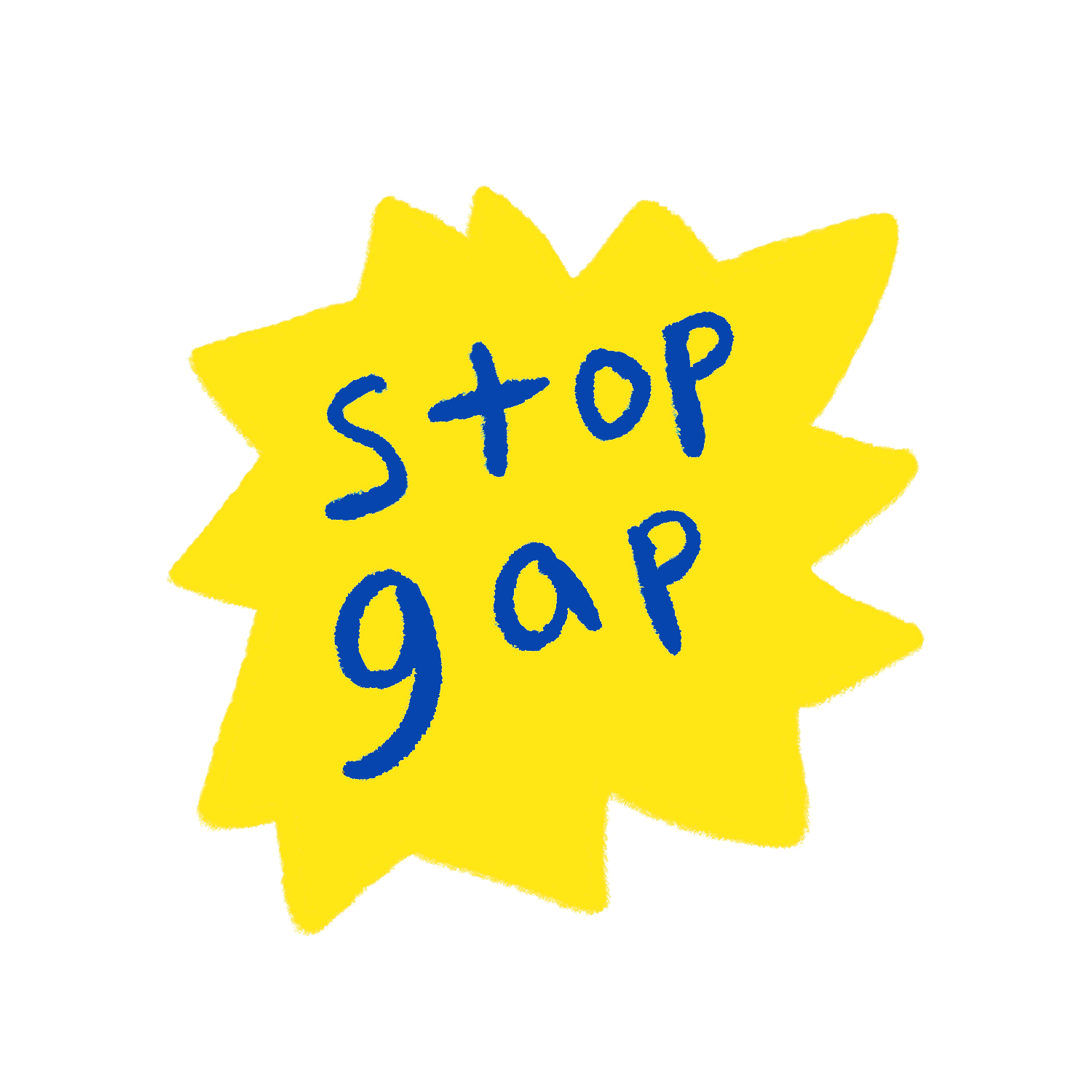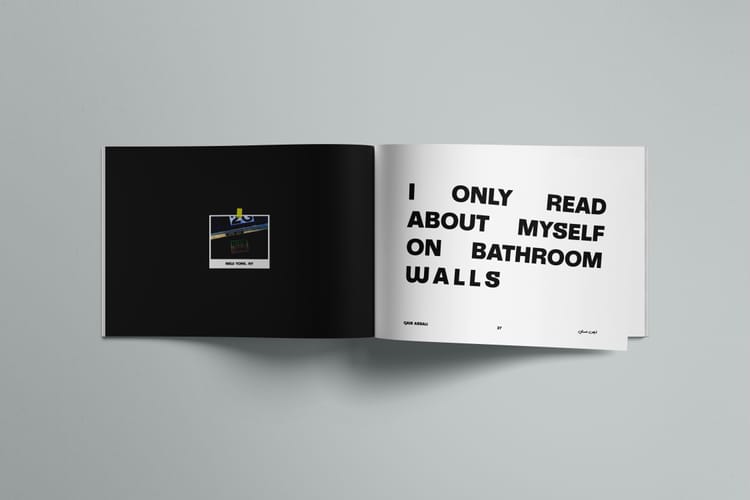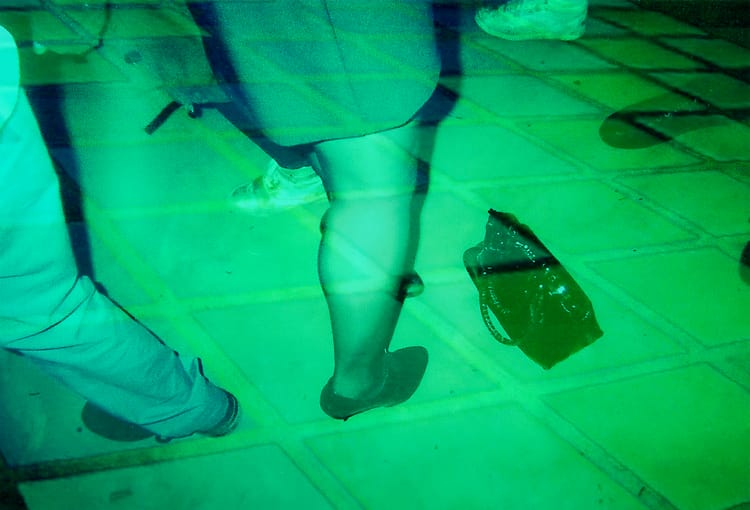“You never know what you’re going to get, but by God, you’re going to get a lot of it”: A Freelance History with Daniel Lavery

J: Good morning, Daniel. Welcome to “This is Your Life!”—a television show I only vaguely remember but which was pretty intense. Oh wow, turns out it was based on an American original.
D: It was also (I think) the most popular one of the Chick Tracts! It was the first one I remember seeing, at least. My friend Nicole got it trick-or-treating from some house on her block in second grade and we used to crack ourselves up over it. Have you seen any of them?
J: Never heard of them, would love a brief explanation before we get down to business?
D: If you’ve seen them at all, it’s as an image macro on Twitter, where Jesus is saying “Blocked. Blocked. None of you are free of sin.” They were (are, I suppose) little fundamentalist comic gospel tracts published by Jack Chick, this huge crank. A lot of them were like “This Was Your Life!” that were just come-to-Jesus action calls, but a bunch of them went further afield about how Catholicism was a blasphemous cult of Marian worshipers—I think there was one about Communion called “The Death Cookie.” They had the look of Tijuana Bibles and the content of a campy tent revival. As upwardly-mobile evangelicals we felt qualified to look down on schlocky, earnest fundamentalists. Oh, and he hated Freemasons, which is how I learned about Freemasonry. I’d never heard about it before I found Chick tracts.
J: The Freemasons paid to bury all of my grandad’s brothers who died in the Pacific during the war. He was from the bay in Scotland where that big boat blew up, at Ardrossan, and everybody there was a mason. You kept a little fire burning for them at home and then if you died far away they gave you a nice funeral. He also was raised to eat salted porridge and brush his teeth six times a day. Sweeter than you’d expect, right?
Okay. Danny. Let’s talk about you properly. You’ve wound an exceptionally interesting path through this labyrinth we call publishing. How did you get started?
D: Salted porridge! Six times a day is surely too often. You’d strip the enamel off!
J: Yeah, that’s what happened to him and his seventy-odd siblings’ teeth. But what clean consciences!
D: He clearly knew what he was doing! Unlike you, I haven’t had a staff job since I quit my job at Cengage Learning (an academic publisher) back in, I think, 2012. That’s not quite true, I worked at Yelp for three weeks later that year, but then I quit that to start The Toast with Nicole Cliffe. Since then, it’s been nothing but contract gigs, some of which (Dear Prudence, that two-year Substack Pro deal I managed to snag) paid really well and some of which didn’t (The Toast, RIP), but never anything longer than a year’s contract at a time, no health insurance, etc. This is one of the reasons my tax situation would send any sane person shrieking into the middle distance. It’s fine, I just get audited a lot and pay in installments like two years late. I worked as a weekend editor at Gawker for about six months in 2012, I think, and Into the Gloss as a weekend editor during the same period. The Toast ran between 2013 and 2016 and overlapped slightly with my tenure as Dear Prudence, the advice columnist at Slate, which lasted from about 2016-2021. Lots of jumping from ice floe to ice floe. Now I’m doing this with you and also looking for a new day job. I have a job interview tomorrow, actually.
J: Best of luck! Leaping from ice floe to ice floe with agility—impressive. Can we go back for a moment, to talk about how you established your voice online, and then how that relates to your book publishing stuff? I have always shied away from publishing a book because it has clashed with other stuff I’ve had going on, like being a critic—it just doesn’t always mesh great with the rest of a life. But for you it has felt really natural, at least from the perspective of one of your fans. Could you give our readers a little guide to your titles along the way, too? Thank you.
D: The Hairpin and Edith Zimmerman particularly were incredibly influential; so were Choire and Alex at The Awl. I feel like I’m repeating myself, name-checking them all so often, but the truth can be repetitive. I was incredibly bored at my day job, and incredibly anxious having graduated from an evangelical Christian college—which I don’t recommend—and feeling like I’d just put myself on the worst path imaginable, and was desperate to move away from my own life. So I started pitching both sites a lot (I’ve talked about this with you before, but I remain immensely grateful to Edith for declining my second-ever pitch, “So you’ve decided to back out of our murder-suicide pact”) and got a few pieces up, including the precursor to what would eventually become the Texts From Jane Eyre book.
This was sort of the tail end of the single-joke-Tumblr-to-book-deal pipeline days, which helped immensely. So I didn’t have anything a book would clash with at the time—I had a day job I didn’t especially like, and that was it. And it’s an incredibly of-its-time book, of course, but I always want to stress “It’s not as gimmicky as it sounds on first blush.” But it also just is gimmicky, which is perfectly fine. I think I became aware that the 2012-era blogg-y voice I’d established was dated sometime around 2016/17, which was really fascinating (it had previously just felt really natural and intuitive and like how I imagined everyone was going to sound like forever) and led to some gradual change. And beyond that, I just like writing goofy little books. So after Texts From I wrote a collection of short stories, and then a very brief little sort-of memoir that was also mostly pastiche, and then a Dear Prudence anthology, so it wasn’t a huge, time-consuming affair where I was writing lengthy novels on the side. I just sold my first novel proposal last year, and I’m working on it now, and unsurprisingly I’m finding it a real challenge!
J: Thank you for this helpful account! I love your books. It strikes me that the “gimmicks” of the contemporary become just…style, as time passes. And if you came up with it, which you did, then you’re simply a style-setting, era-defining writer.
I absolutely love the piece that the ill-fated murder-suicide article grew out of in your mind, and I think it demonstrates a lot about you. It's a kind of blog acorn to your literary oak. Please link it and explain! Plenty of people remember the article but don’t necessarily realize it was one of yours, I think.
D: That’s part of what makes me laugh, too—my first piece for them, “So You’ve Decided To Drink More Water,” was a gentle little sendup of the popular wellness chestnut (or blog acorn, as you like) to drink more water, especially popular in women’s magazines (I was a woman in those days, as was the style at the time). And that I wanted to follow it up with this very violent “So you’ve decided to back out of our murder-suicide pact” is very funny in retrospect. It was not the right fit! And was mostly just a description of someone trying to crawl away from me while bleeding out and suffering massive injuries. Maybe it could have worked in a certain kind of horror anthology, but it was at best in sort of poor taste.
I don’t think I was responsible for the 2012-era style, although I do think I contributed to some of the linguistic quirks that were part of the environment, for whatever it’s worth. It certainly predated me!
J: If I might be bold, what’s different about you compared to a lot of bloggers of the time, but is also true of say, Sam Irby, is your sheer consistency. You never know what you’re getting from a Danny or a Sam, in terms of content, but you know that the style is going to wrap you up and whisk you away in a confident and familiar fashion. Consistency is so rare online that readers seek it out and form loyalties to it in a way that branding and marketing no longer really achieves.
That’s a bit of a boring way of putting it. But just being yourself and not letting yourself become a voice-clone—it’s harder than it seems from the outside and it’s more valuable than the industry “metrics” can account for. You’re a very principled person, too. What advice would you give a young writer who wants to protect their individuality, or how have you managed it?
D: “You never know what you’re going to get, but by God, you’re going to get a lot of it” is something that lunch ladies and I have in common, I suppose. It’s very of a piece with like, 1920s-era newspapermen like Don Marquis and Robert Benchley, who are some of my biggest influences. Benchley could turn out something brief and exquisite, silly and balanced, composed and perfect, every day for years, and that sort of capacity is something I’ve always admired. And Don Marquis’ “archy and mehitabel” feels incredibly fresh, I think—there’s a very clear, direct throughline from archy to Texts From Jane Eyre. But by the time I became a writer, you couldn’t really be a newspaperman in the same way, so I blogged instead.
Possibly some of that distinct voice came from being the child of a pastor, and a pastor with very particular mid-century tastes. Sort of like that old Onion gag, “Cool Dad Raising Child On Media That Will Put Them Entirely Out Of Touch With Their Generation.” And of course it helped that I wrote very little criticism or essays for the first few years, just goofs, where it’s all voice and no discipline. I needed the discipline, too, which came later. On my good days, I think of myself as principled, and on other days, it’s more like judgmental. And I think some of what could look like principle has just been lack of opportunity! I really haven’t turned down anything that’s come my way, I don’t think.
J: I think it’s possible that you don’t realize the shitty things that very careerist journalists do to get ahead, because those are proactive strategies. They change a person and they change the writing. There’s “discipline” and there’s “discipline.”
D: And I think that’s part of the difference between our respective career trajectories—I’ve never been a journalist, not even a little. Don Marquis and Robert Benchley were both newspaper guys, but they weren’t breaking stories or reporting the news. So whatever journalists do, for good and for ill, is usually quite distinct from what I do. Unless someone wants to hire me as a journalist, and then I’ll give it a go. I am looking for a day job, so give me a shout.
J: You’re more newspaperman than the newspapermen and any publication would be lucky to hire you. Speaking of money, and doing things for not money: From your perspective, why the Stopgap?
D: I really like having a fun little place to go online! I think there aren’t enough fun little places to go online, and I like writing goofs enough that I’m perfectly happy to do it for free some of the time. Besides which, everything about writing feels so atomized right now. Everyone is siloed off from one another, freelance work seems increasingly scarce. I don’t know! In the beginning of my career, I wrote for free, and when I was able to stop working for free, that felt like a big milestone. And now it feels like a different kind of milestone to be able to afford to write for free some of the time again. Free stuff is nice! Free stuff is fun. You’ve got to be careful, obviously, otherwise you end up reinventing flash mobs and tipping too far down the whimsy side of things. But within reason, free stuff is great, and good for the spine. Also I like you, and I wanted to write with you a lot, and this seemed like an easy way to do it.
J: :)
D: :)




Comments ()